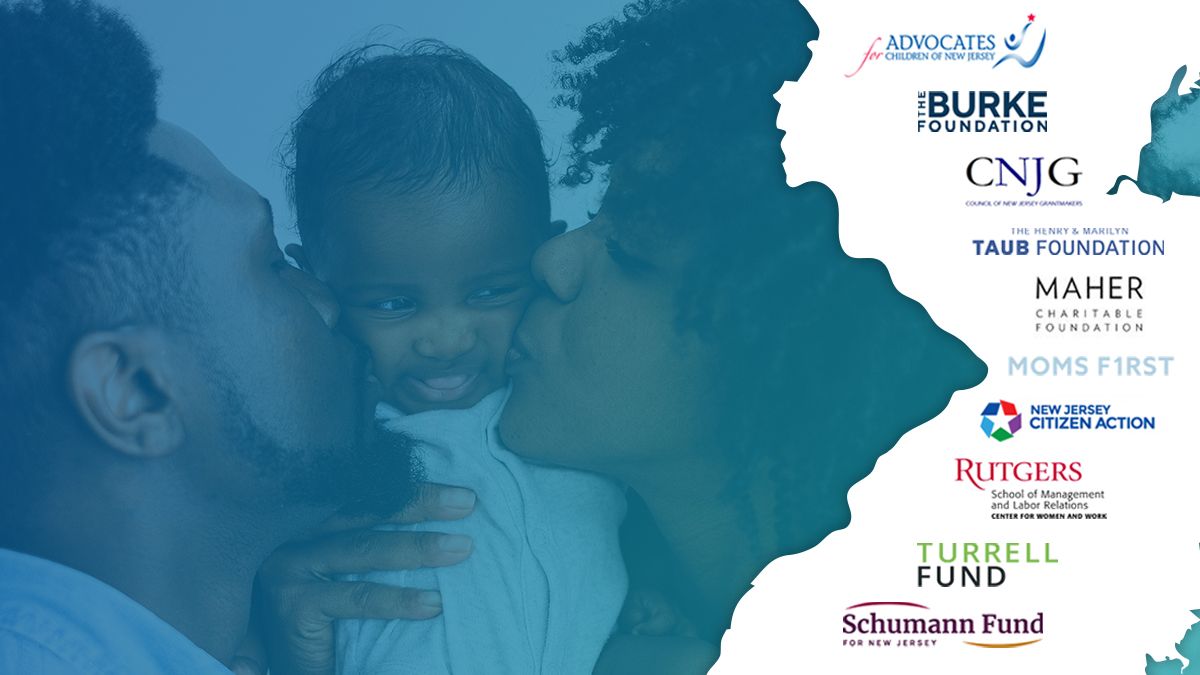👋 Families in New Jersey struggle to make sure their children are well cared for — especially families that work hard but can’t make ends meet.
These issues are well documented. So is the research showing that the time from pregnancy to age 2 is crucial to brain development and that the more nurturing children receive in that period, the healthier they will be for the rest of their lives.
As Dr. Dana Suskind, professor of surgery and pediatrics at the University of Chicago Medical Center, put it, “It’s time for policy to catch up with science.” Proof that it hasn’t: A New America report says of the nation’s youngest children, “We invest less in education than any other stage of life. Yet these children are going through the most important and fastest period of brain development they’ll ever experience.”
The needs are known. The science is convincing. So what’s missing? All too often, the answer is political will.
The failure to meet the needs of young children and their families during the most critical window of human development is tragic for their health and well-being — and costly for everyone because the financial toll of getting it right the first time would be far less than what taxpayers end up paying now.
To that end, I’m pleased to share our launch — with some great partners — of the First 1,000 Days Policy Coalition to put the health of families and communities at the forefront of public policy debate.
This issue of Starting Early explains the “why” behind this exciting collaboration — including an interview with Deb Lancaster, executive director of the Rutgers Center for Women & Work, which serves as the Coalition’s hub.
Atiya Weiss
Executive Director, the Burke Foundation
1 big thing: Supporting children means supporting families

All families have the right to more than survival — they deserve to thrive. But millions find the odds are stacked against them. In 2021, over 16 million US households lived below the federal poverty line, struggling to cover such basics as housing and healthcare.
- Even those above the poverty line often fall short; in New Jersey, a full-time minimum-wage job barely covers half the monthly survival budget for a family of 4.
The first 1,000 days of a child’s life are crucial for family bonding and building lifelong health and well-being. Unfortunately, bonding often is a luxury for overworked, under-supported parents and other caregivers.
We can prevent unnecessary harm to children and change the trajectory for families with 3 policy reforms:
- Support and expand child tax credits: In addition to reducing child poverty during the COVID-19 pandemic to a record low, Harvard’s T.H. Chan School of Public Health found that expanding the federal child care tax credit notably reduced depression and anxiety among parents that struggle to get by financially, particularly in Black and Hispanic communities. The tax credit helps bring down barriers caused by longstanding racial wealth disparity that worsens economic hardship.
- Provide affordable, high-quality child care and fairly compensate child care workers: Most everyone has the experience of having to find care for grandma, a child, or a loved one with illness or disabilities. The economic and cognitive burden of this on families is at a crisis level. The common thread throughout each problem is an inadequately-compensated workforce. Meanwhile, the need for accessible, high-quality child care grows. And at the same time, many child care facilities face closure because of a lack of funding and qualified child care educators.
- Bolster paid family leave and normalize its use: Paid family and medical leave are essential for the well-being of new mothers. Besides improving financial stability, paid leave contributes to success with breastfeeding, reduced maternal depression, and greater attachment. But in New Jersey, families of color use paid leave less than others, as do people making under $100,000 annually. Many potential leave takers fear they’ll lose their jobs.
The bottom line: The price of inaction is staggering, both in financial terms and stress on caregivers. Two-generation policies are key to laying the groundwork for healthier families and a thriving workforce.
2. A new coalition working for change

As conditions deteriorate for working families, it’s time that we improve family health and well-being and make child care sustainable for families that need it and the dedicated workers who provide it. That’s what the First 1,000 Days Policy Coalition is all about.
Supported by funding from the Burke Foundation, Turrell Fund, Maher Charitable Foundation, Schumann Fund for New Jersey, Henry & Marilyn Taub Foundation, and other philanthropic partners, the Coalition brings together parents and providers, advocates, community members, and researchers to identify and advance data-driven policies to improve the health and well-being of New Jersey’s youngest residents, their families, and communities.
We’re pleased core partners include such powerhouse organizations as:
- Rutgers Center for Women and Work — driving a research-based agenda to inform policy and serving as the Coalition’s hub
- Advocates for Children of New Jersey — leading the Coalition’s legislative advocacy
- Moms First — aiming to galvanize New Jersey’s business community to support family-friendly policies
- Council of New Jersey Grantmakers — leading the Coalition’s efforts around economic security for families
The Coalition is creating a policy roadmap with short- and long-term strategies to make child care in New Jersey more accessible and affordable for families, more sustainable for child care educators, and more enriching for children.
If you’re interested in joining the First 1,000 Days Policy Coalition or want more information, click here. This needs to be a far-reaching Coalition with the strength to get the job done. ✅
3. Supporting working families: talking with Debra Lancaster, Rutgers Center for Women & Work

Deb Lancaster has spent her career focused on improving families’ day-to-day lives. At the Center for Women & Work (CWW) — the First 1,000 Days Policy Coalition’s hub — she focuses on improving access to paid family leave and quality, affordable child care. Following is a condensed version of our conversation. The full interview is available here.
What’s one thing you wish people knew about the Center?
We would love people to know the research and policy analysis we’ve done for the past 30 years has made contributions toward policies that support families in the first 1,000 days and beyond. Getting paid family leave instituted is probably the best example. New Jersey was the second state in the nation to pass paid family leave, which is so critical for children and families in those early days.
We care deeply about equitable implementation of that policy and we also want to encourage a shift in our culture overall. We want the policy to live up to its full potential as well as help employers and communities understand that we don’t have to stop with the policy that’s on the books. There are ways to enhance that policy to support families as they raise their children or care for others during various life events.
What were some key findings from CWW’s 2023 child care study relating to working families?
One observation is that the need for child care in New Jersey has increased over time. In 2010, the share of New Jersey children under the age of 6 with all available parents in the workforce was just under 63%. In more recent years, it’s close to 70%. And the demand for child care presumably goes along with that.
Approximately 24% of families with children experienced some type of child care disruption because of the pandemic, which they managed in different ways. Some parents supervised their children while working — if they were able to work at home and have that flexibility — and some of those who could do so cut their work hours or used paid time off. But households with incomes of less than $50,000 a year more often lost wages and jobs because of child care disruptions.
New Jersey’s child care workforce was one of the slowest in the country to recover. This might be connected to our tight labor market or to the low returns on education in the child care sector — child care workers with a bachelor’s degree or higher earn just 33% of their equally-educated counterparts who are not in child care.
What role will data and research play in the First 1,000 Days Coalition?
New Jersey is a leader in many areas for children and families, but I also think we have the wisdom in the state to know we can do better and that some of the progress we’ve made isn’t always felt evenly or isn’t implemented equitably.
We’ve identified 3 critical policy areas: access to high-quality, affordable child care; equitable implementation of paid family leave; and income support so families have some economic stability in those early days.
The research can go a long way to convince people to join the Coalition who might not otherwise understand the connection to themselves, and to guide investments that promote nurturing. Peoples’ lived experience is part of the research evidence, so sharing their stories will be central to this campaign.
What innovative things are happening now that the Coalition should consider for the areas it will pursue?
Research has found that increasing the income of low-paid families when kids are young is linked to positive outcomes as those children enter adulthood. Outside of such federal initiatives as the 2021 American Rescue Plan, where the child tax credit was expanded, there are other local types of income supports we can explore, like baby bonds — which have been instituted in other states and help reduce the racial wealth gap.
There’s absolutely room and interest for public-private partnerships for potential new revenue sources for child care. COVID helped people connect the dots between healthy child care infrastructure and benefits to children, families, and the economy. But we’ve never viewed child care as a public good in the United States; it just hasn’t been framed in that way. That still requires a cultural shift in how we think about child care.
1 smile to go: Tiny moments bring huge payoffs 😊

Got a second? That’s how long researchers estimate it takes for 1 million neural connections to happen in babies’ brains.
Educational consultant Dan Wuori uses social media to share touching moments of connection, including this video of a dad and his little one sharing precious “serve and return” interactions. See how engaged they both are? It shows how seemingly small moments are golden opportunities to ignite a baby’s growing brain. Those early experiences lay the groundwork for language and cognitive skills.
Find out more in this New York Times article about Dan.
The roundup
- Advancing policy: The Rutgers Center for Women & Work seeks a post-doctoral associate to work on advancing understanding of New Jersey’s child care landscape. The position involves work identifying research evidence to inform policymaking and advocacy that supports working families with a focus on child care; paid family leave and income supports; and how public policies help or hinder women and working families.
- Celebrating the power of family: Burke Foundation President James Burke was honored with Debbie Harry, lead singer of Blondie, at the Children’s Home Society of New Jersey’s 130th anniversary gala April 6. At the event, James reflected on CHSNJ’s legacy of supporting children and families and for putting “their hearts and souls into supporting children and families every single day.” 💕
- Seeking bipartisan solutions: The Convergence Collaborative on Supports for Working Families released a report featured on NPR advocating for national government support for child tax credits, child care, and paid leave.
